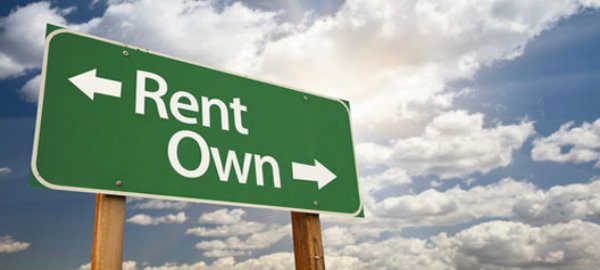Buying vs. Renting: Which is Better?
 “Should I just buy a house or rent one temporarily?”, a question that has been asked by most budget-conscious adults who would like to have a place of their own. Both options definitely have to be weighed in order to come up with the right decision.
“Should I just buy a house or rent one temporarily?”, a question that has been asked by most budget-conscious adults who would like to have a place of their own. Both options definitely have to be weighed in order to come up with the right decision.
The answer may change based on different needs and situations. A number of factors will apply. For one, it will depend on which state you are in as rent and house prices differ from one state to another. Second, you have to know the current situation of your local real estate market. This is why answering the question of whether to rent or to buy requires a bit of research.
Real Estate Market in Minnesota
According to Zillow data through May 2016, the median sale price for homes in Minnesota is $191, 500. They predict a 1.9% increase in the value of homes within the next year. Per Zillow the rent index for Minnesota is $1,410.00/month. Per Trulia data through May 2016, the median sale price is $245,000 for homes in Minnesota while the median rent is around $1,550/month.
So lets take a look at some of the pros and cons of Buying vs. Renting below:
Renting a home
Pros:
- The decision to move is easier. If you, all of a sudden, need to move to another town or neighborhood for work or other reasons, it’ll be easier. You don’t have to sell the property you’re currently living in because you do not own it. All that’s needed is to pay balances and then pack up and move.
- You don’t own a property that’s depreciating. The real estate market can be unstable most times so homeowners don’t really have the guarantee that the value of their home will increase overtime.
- No sweat maintenance. If anything in your house breaks down, you don’t have to pay someone to have it fixed. All you have to do is call the building caretaker or landlord.
Cons:
- You don’t own the property. You’re paying in order to make use of the place as living space, but you won’t eventually own it and have no right to sell it when time comes for a move.
- Your rent might increase. Similar with house prices and values, rents can also increase.
- Depending on your local real estate condition, you might be seeing an increase in your rent as soon as your lease expires.
- Improving the property needs approval from the owner. Before you do any repairs, repainting or remodeling, you have to seek the approval of the owner first. Other than that, you’ll be remodeling something that you don’t own which can make you think twice about doing it.
Buying a Home
Pros:
- Yes to tax breaks for homeowners. While tax breaks aren’t the main reason why people buy homes, it’s an added benefit to owning one. Homeowners can deduct their mortgage interest payments and property taxes when calculating their federal income tax.
- It’s an investment. If you own a house, you can choose to have it rented to generate passive income for yourself. Also, the value of the home might increase overtime. If you move, you can sell it for a higher price than what you paid for it.
- There’s ownership. You’ll be able to settle in the neighborhood your home is in. Because your situation is not temporary, you’ll be able to renovate your home or volunteer in a community program in your neighborhood.
Cons:
- Maintenance will be out of your own pocket. As a homeowner, you have to make sure that your house is in tip top shape. You’ll be faced with expenses on anything that needs fixing inside and outside your house.
- Your home will be a cash investment. It goes without saying that you’ll need a good amount to cover the down payment as well as other costs to close the deal and process ownership.
- Hello property tax and home insurance. Property tax is mandatory and it can go up depending on the value of your house. Home insurance is another thing that’s mandatory if you have a mortgage.
It’s important that your choice reflects what you really need. Weigh the pros and cons, and study the local statistics of the area you want to live in. Examine your financial capacity to avoid hassles in the near future and decide accordingly. For more real estate tips, make sure you visit our blog.